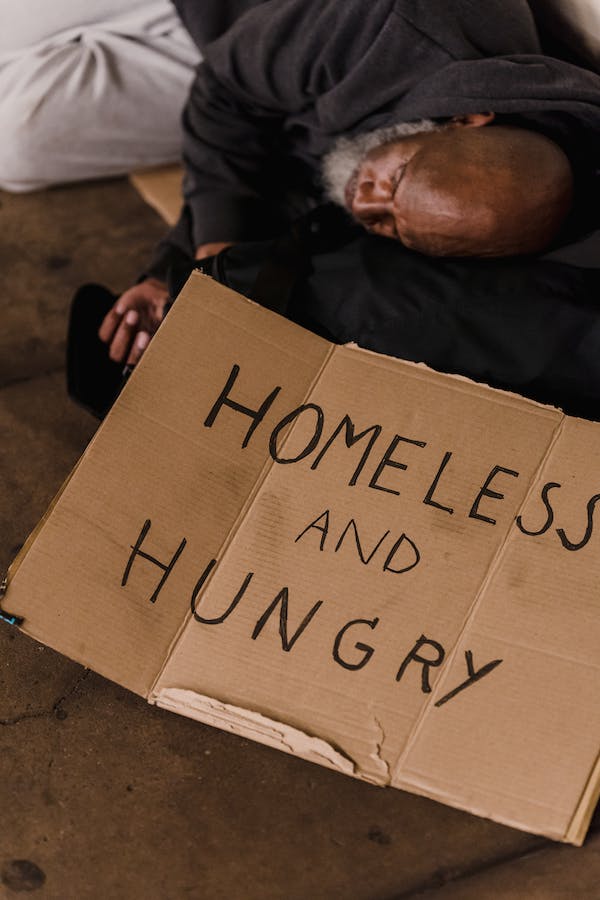Homelessness is an ever-growing crisis across the world. With multiple hundred thousand homeless people in the United States alone, there has never been a greater time for people to come together and work to help end the crisis. While it is a difficult problem to deal with, there are steps that can be taken to make a real difference in people’s lives.
The first step in helping end homelessness is to address the root causes of it. Poverty, joblessness, mental illness, addiction, prejudice, and disability are all contributing factors to the growing crisis of homelessness. By making strides towards solving these issues, a huge positive impact can be made in reducing the numbers of homeless people on the streets. It is also important to provide education and job training initiatives, along with shelters and other safe havens so that those affected can receive basic human needs without fear of judgement or shame.

The second step is to provide the homeless population with financial and emotional support. Homeless individuals often contend with multiple issues such as violence, poverty, and health and mental health problems. These challenges can be traumatic and can often lead to deeper psychological issues. By providing financial assistance through government aid and donations, and even accessing free mental health services, we can make a real difference in helping end homelessness.
The third step is to establish long-term housing solutions for members of the homeless population. There are options such as and stabilization programs and transitional housing that can provide more long-term housing solutions. These can provide individuals a safe place to live while they transition to more permanent housing. Additionally, these can also provide additional support such as access to employment opportunities, job training, support for mental health and substance abuse, and various types of social services.
Finally, it is important to include those in the homeless community in the larger conversation about homelessness and to support the efforts of local non-profits that are fighting on behalf of the homeless population. As homelessness continues to rise, so does the need for community education and awareness to help raise awareness and combat stigma. Hold community events such as homeless outreach days or volunteer opportunities to help build relationships within the homeless population, offering assistance and attending other events and meetings related to the issue of homelessness.
In conclusion, helping end homelessness can seem like a daunting and complicated task. However, this crisis can be effectively addressed if people come together to seek solutions and take appropriate action. All four of the steps outlined here can be taken to make a real difference in the lives of those affected by homelessness. Additionally, those who want to help can volunteer at local shelters or make donations to help support the efforts of non-profits and homeless initiatives. In the end, it is important to remember that we are all in this together and that everyone plays a role in helping to make a difference in ending homelessness.






